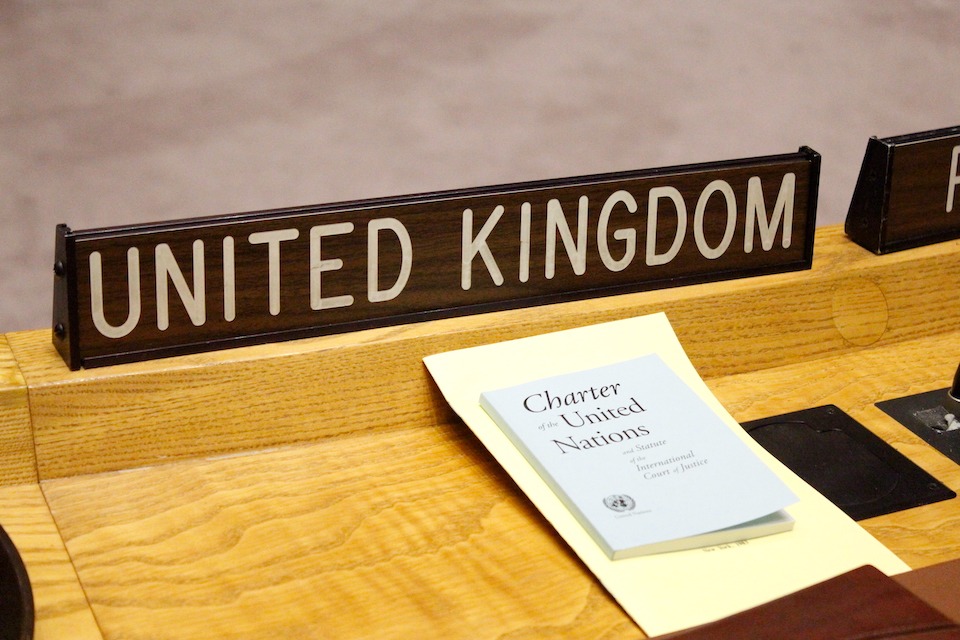The International Residual Mechanism continues to implement its mandate in a timely and effective manner: UK Statement at the Security Council
Statement by UK Legal Adviser Chanaka Wickremasinghe on the International Residual Mechanism for Criminal Tribunals.

Thank you Madam President,
I would like to begin by acknowledging the sudden and tragic passing of Judge Ibanda-Nahamya and remembering her vital contribution to international justice. In particular in this respect I would point to her exemplary work on the Mladić and Kabuga cases. I also take this opportunity to welcome the appointment of Judge Mugambe and wish her the best in her new role.
Turning to today’s briefing, let me thank President Gatti Santana and Prosecutor Brammertz for their reports and their statements today.
Under their guidance, over the past 6 months, the Mechanism has continued to implement its mandate in a timely and effective manner. Two very recent successes reflect this.
First, the final convictions of Jovica Stanišić and Franko Simatović, which conclude the major ICTY cases and are landmarks in international justice. Their convictions, while many years after their offences, are of great importance in demonstrating the international community’s continued fight against impunity for the most serious crimes.
The ICTY and IRMCT’s judgments form part of the record of the suffering inflicted on civilians during the conflicts in the former Yugoslavia in the 1990s. We remember the victims and survivors and recognise the bravery of all those who have cooperated and supported the judicial processes.
Second, the recent arrest of Fulgence Kayishema. Having recently marked the Twenty-Ninth Commemoration of the 1994 Genocide Against the Tutsi in Rwanda, Mr Kayishema’s arrest is a salient reminder of the Mechanism’s ongoing commitment to securing justice. The United Kingdom would like to commend the Mechanism’s Fugitive Tracking Team and the South African authorities for their success in this matter, and also to thank Eswatini and Mozambique for their important contributions to this success.
We also note the recent news that the Trial Chamber has decided Félicien Kabuga is no longer fit to stand trial and that it will deal with his case by way of an alternative finding procedure. We look forward to future updates on his case and underline our commitment to holding the perpetrators of the genocide against the Tutsi to account. As such, we are concerned by reports of ongoing denial of the Genocide. This is unacceptable, both in its impact on the victims and in hampering the international community’s efforts to ensure the accountability of the perpetrators and to deter future atrocities.
While the international trial and appeal processes for the former Yugoslavia and Rwanda are coming to an end, processes at the domestic level are ongoing. We call on all countries to cooperate and to support these national processes in order to ensure justice for all. In this regard, continued reports from the Mechanism of some States blocking cooperation in the Western Balkans remain deeply concerning. It is also high time that Serbia arrest and transfer Petar Jojić and Vjerica Radeta to the Mechanism following years of requests.
Looking to the future, we note that the Mechanism continues to have much work to do even though the trial phase is very nearly over. There are 47 individuals serving sentences which need to be supervised, many witnesses who continue to need protection and domestic proceedings in the former Yugoslavia and Rwanda that need the Mechanism’s support. It is nevertheless important that this remaining work is done as efficiently as possible, and so we welcome the President’s focus on the future strategy of the Mechanism, as it transitions to becoming a fully residual institution. We commend the detailed work being done in this respect, and look forward to the Mechanism’s proposals.
Finally, Madam President, I must say a few words in response to Russia’s unfounded allegations against the UK authorities in relation to Karadzic. The UK is proud of its assistance to the IRMCT in the enforcement of sentence and encourages other States to do likewise.
Karadzic is not being mistreated in any way. He has exactly the same treatment as any other prisoner. He has been subject to some, time limited, proportionate, and lawful restrictions on his contacts externally, but this followed his misuse of these privileges to publish articles that push political messages, genocide denial, and glorification of war crimes. He has been informed of this. Underpinning all of this, is Karadzic’s own failure and that of his supporters to recognise that he has been convicted of some of the most heinous crimes witnessed in Europe, including the Srebrenica genocide.
Thank you Madam President.